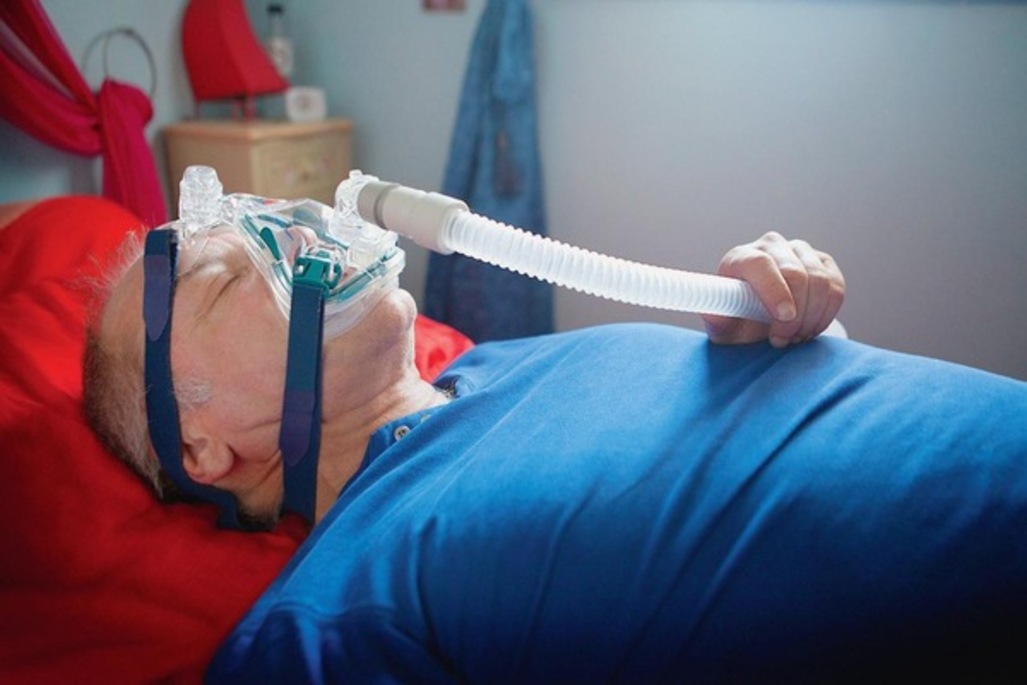Sleep apnea
Sleep apnea syndrome :
Sleep apnea syndrome (“SAS”) or more precisely sleep apnea-hypopnea syndrome (“SAHS”) is a sleep disorder characterized by a cessation of respiratory flow (apnea) or a reduction in this flow ( hypopnea). Its causes are diverse but can be classified into two categories:
- They can be obstructive and associated with obesity or metabolic syndrome: this is then called “obstructive sleep apnea syndrome”. Apnea is called “obstructive” when it results from respiratory efforts to combat obstruction of the upper airways (nose, mouth, pharynx, larynx).
- They can also be neurological, due to an abnormality in the control of breathing and there is therefore no effort of inspiration as in the previous case. This is called “central sleep apnea syndrome”.
 This syndrome affects the quality of life not only of those affected by it, but also that of those around them: Indeed, apnea, by degrading the quality of sleep (decrease in deep and paradoxical sleep, micro-arousals), causes The appearance of excessive daytime sleepiness sometimes associated with irritability, a drop in libido, or a depressive state. On the other hand, apneas reduce the partial pressure of oxygen in the blood and cause oxygen desaturation. The resulting chronic hypoxemia is itself responsible for high blood pressure and the appearance of other cardiovascular disorders. Long ignored, OSA, in its most common form (“OSAS”), was described in 1956 under the name “Pickwick syndrome”. Source Wikipedia
This syndrome affects the quality of life not only of those affected by it, but also that of those around them: Indeed, apnea, by degrading the quality of sleep (decrease in deep and paradoxical sleep, micro-arousals), causes The appearance of excessive daytime sleepiness sometimes associated with irritability, a drop in libido, or a depressive state. On the other hand, apneas reduce the partial pressure of oxygen in the blood and cause oxygen desaturation. The resulting chronic hypoxemia is itself responsible for high blood pressure and the appearance of other cardiovascular disorders. Long ignored, OSA, in its most common form (“OSAS”), was described in 1956 under the name “Pickwick syndrome”. Source Wikipedia
The didgeridoo and sleep apnea:
If you suffer from obstructive sleep apnea , regular practice of the didgeridoo can certainly help you.  to reduce them . Do not hesitate to talk to your doctor. At the start of course, you risk having big, puzzled eyes just for the simple answer! A study carried out in Zurich showed that regular practice (20 minutes per day) of the didgeridoo reduced obstructive sleep apnea. In 2009 and 2010, Gauthier Aubé worked in collaboration with Doctor Kabeya and the ABIR (Burgundy Association of Respiratory Insuffisants) to teach the didgeridoo to people suffering from obstructive sleep apnea. In the study group set up in Dijon (21), students who regularly practiced their instrument saw their sleep apnea reduced by at least three, thus confirming the results of the Zurich study.
to reduce them . Do not hesitate to talk to your doctor. At the start of course, you risk having big, puzzled eyes just for the simple answer! A study carried out in Zurich showed that regular practice (20 minutes per day) of the didgeridoo reduced obstructive sleep apnea. In 2009 and 2010, Gauthier Aubé worked in collaboration with Doctor Kabeya and the ABIR (Burgundy Association of Respiratory Insuffisants) to teach the didgeridoo to people suffering from obstructive sleep apnea. In the study group set up in Dijon (21), students who regularly practiced their instrument saw their sleep apnea reduced by at least three, thus confirming the results of the Zurich study.